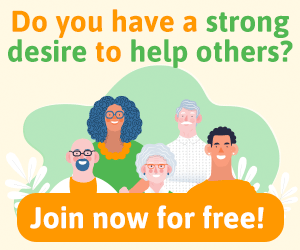Feeling lost in life and not knowing what to do next can be paralyzing. Psychologist Stanislava Puač Jovanović explains how to embrace that 'I feel lost' panic we all get sometimes – and then how to move forward in 7 practical steps.
‘I feel lost in life'. Does this saying strike a chord? Have you ever muttered it to yourself in a moment of desperate reflection on the direction you're heading in? Feeling lost in life without the slightest idea where to go next can be daunting and help perpetuate stress.
However, it's a common situation, one many of us have experienced (and will continue to experience) throughout our lives. Choosing a college, deciding on a career, or thinking about where to live are just some of the most common situations when you might feel frozen in this way.
On the flip side, this feeling of being lost can also surface when you achieve some of your greatest goals and have no clue as what to do next! Indeed, when you undergo colossal life-changing experiences and become someone new, the old plans and ideals could stop resonating with you.
So, even if you do discover what you want to do next in your life, at some point in the future this paralyzing fear may come back and set you adrift again. Let me show you what to do when you feel lost and how to draw a new map to creating a meaningful life.
7 steps for when you're feeling lost in life
First, a disclosure. It wasn’t so long back that I myself was proclaiming 'I am lost!'. In fact, exactly nine years ago, I earned my degree, top of my class. I immediately got a job at a company and entered the 9 to 5 workforce. It was probably on only the second day that I had an epiphany about the meaninglessness of it all. I realised I was actually feeling lost with my life and decisions. In fact, I pretty much hated my life at that point.
So, if you're experiencing a similar moment in your life and struggling to decide how to move on, here are seven steps you can take to make discovering your next move less stressful and more intuitive.
1. Put a stop on the search
Do you hear the scary voice repeating how lost you are feeling in your head? Well, I know we're just getting started, but the first thing you need to do is actually put a stop to trying to figure out the answer. Although it may feel like an urgency, chances are, you need to take some time to pause first. Why?

Feeling lost in life is a sign that you need to make changes
Think of it as a creative problem-solving. It consists of four phases – preparation, incubation, illumination and verification. It’s safe to say that, if you don’t know what to do with your life, you hit an impasse in the process. It’s like trying to force yourself to write a best-selling novel: immediately! It just won’t work.
Firstly, you need an intentional delay. Step away from the problem. The break will give your mind time and space for incubation to occur. Fill your time with activities such as walks, exercise, yoga, socialising with the right people, education and any other hobbies.
Don’t worry. Your mind will be quietly working on the answer in the background. When we can’t resolve a problem, usually it’s because we’re fixated in our thinking. A break will allow for the habits, patterns and fixations to dissolve. What’s more, it will let the creativity flow in.
2. Prepare the terrain
Once your mind has been given a chance to shift perspective, it’s time to go back to exploring the possibilities. However, you need to do it the right way. Make your internal and external environment ready for some soul-searching on why you're feeling lost in life.
There is scientific proof for the age-old wisdom advising against making decisions on an empty stomach. A study from the University of Dundee determined that, if we are hungry, we are more likely to seek immediate gratification. The problem is that this tendency does not apply to food choices alone. Hunger negatively affects our financial and interpersonal decisions, too.
“Make your internal and external environment ready for some soul-searching on why you're feeling lost in life. Be sure to do it after a good night’s rest and after a hearty, healthy meal.”
The same goes for not being rested. Sleep deprivation has severe cognitive and neural consequences. Anyone who, for any reason, has been sleep-deprived, knows well the mind-fog it creates. It becomes impossible to think clearly and make coherent and considered decisions.
And what about our environment? An interesting study determined that even lighting can affect the ability to solve problems. According to the findings, what you need is the kind of light that feels right to you. It’s up to you if you prefer ‘warm’ or ‘cool’, or dimmed or bright light. The trick is in making the light in the room elicit a positive mood. Your cognitive abilities will follow along.
RELATED:
- Following Your Bliss: 5 Steps to Get Started
- What's the Point of Life?
- How to Find Meaning in Life: 7 Strategies
So, when you're ready to explore why you're feeling lost in life, be sure to do it after a good night’s rest and after a hearty, healthy meal. Make your environment work for you. Prepare the terrain, go to a room where you feel good, fix the lighting, and get going.
3. Search deep within: meditate
A problem as weighty as feeling lost in life requires going deep to find the solution. Meditation can help you get in touch with your most profound Self.
The benefits of meditation have been confirmed over and over again. Indeed, a review of over 160 studies that met the strict criteria determined that meditation has positive effects on emotional and interpersonal issues and cognitive abilities. As little as four days of mindfulness training improved cognitive performance in another study.
But how does this relate to you seeking out your future life path? Well, meditation can deliver the clarity of mind and emotion you need when figuring out your purpose in life. It can open the path to communicating with yourself, in a sense.
4. Remember what you used to love
When you were a kid or teenager, chances are you never felt lost in life. You simply did whatever it was that you were doing. Yes, it was objectively much easier not to contemplate on what to do with your life: your parents took care of your needs, and you didn’t have anyone’s needs you should be taking care of. Then adult life happened.
Nonetheless, there’s a wisdom in the young(er) you that could help you find your way now. Do you remember the state of losing yourself (in a good way)? It could have been reading a book, making art, solving logical or mathematical problems, learning something new, dancing, or exercising. Do you remember a cause for which you used to feel a fire burning inside of you? An idea that made you forget everything as long as you could work towards it?

Explore what you really love doing and find your flow state
What most probably happened to you in those times is called flow state, a phrase coined by psychologist Mihaly Csikszentmihalyi. His research concluded that the more ‘flow’ you have in your life, the more resilience, well-being, and fulfilment you will enjoy.
So, what does this mean for you at this point? When you feel that your life is off track, a good place to start is to ask yourself: what is it that puts me in a state of ‘flow’? What is it that I used to love doing and believed in? Is there a way to rearrange my life and put such activities and causes at the forefront?
5. Brainstorm: and then limit your choices
Once you’ve been through the previous four steps and opened up the search area, it’s time to narrow things down and list some concrete ideas. Do a brainstorming session with yourself. You can make a list, a vision board, a graph – whatever works. Your goal is to think of as many scenarios for yourself as possible.
However – once you do, you will then begin to narrow down your choices. Kierkegaard spoke of ‘dizziness of freedom’, the bewildering anxiety we experience when facing the limitlessness of possibilities for ourselves and our lives. Indeed, in the world of empirical research, it has been found that there is such a thing as too many options. When you face ‘choice overload’, you might not be able to make the right call.
“When you're feeling lost in life, write your own obituary. Stop and think about how you would most like to be remembered. Think of how want to live your life while you have it.”
So, once you have thought of possible routes for yourself, try to sit with each option for some time. See if they still seem right after a while. You will want to eliminate most of them gradually.
An exercise that might help you determine which options to keep is asking yourself “Why?” five times. That is, set a goal for yourself, such as a steady job, financial security, spiritual growth, family, health or well-being. Then, ask yourself why you want this. When you respond, repeat the question: why do you want that? After five rounds of ‘Why?’ you should be pretty close to your most profound motivation. Use it to plan and create the new life for yourself.  Feeling lost in life? Brainstorm ideas, then narrow choices
Feeling lost in life? Brainstorm ideas, then narrow choices
6. Write your own obituary
One of my favourite techniques for jolting oneself out of inertia when feeling lost in life and finding a way forward is rooted in existential-humanistic psychology. The task is pretty straightforward – write your own obituary. OK, it sounds morbid, and although you may feel some initial discomfort, it’s actually a rewarding and transformative exercise.
According to the author of a recent study, the technique delivers a “greater sense of acceptance, appreciation, and awe toward the possibilities of living the life one envisions”.
The logic behind the technique is simple. Even though we might not like it, we will eventually die. So, stop now and think about how you would most like to be remembered. Think of how you want to live your life while you still have it. You might be surprised by how your obituary would sound at the moment. And, most importantly, you will probably find out where you need to go next.
“A problem as weighty as feeling lost in life requires going deep to find the solution. Meditation can help you get in touch with your most profound Self.”
Allow me to express the weight of the ideas behind proposing this technique with a quote: “So, live as if you were living already for the second time and as if you had acted the first time as wrongly as you are about to act now!” ― Viktor E. Frankl, Man’s Search for Meaning
7. Practice acceptance and non-judgement
Finally, once you have made your decision, you will need to be a good support for yourself. If you’re feeling lost in life, you're actually at a moment that will inevitably lead to a major change. And, changes often don’t come easy, even when they are for the better. Perhaps your change will mean investing time, money and a lot of effort before it can be realised.
RELATED:
- When Life Gives You Lemons, Try Lemonading
- Inner Turmoil: Understanding and Resolving It
- 7 Ways to Develop a Can-Do Attitude
Therefore, prepare to go through the change with an attitude of acceptance and non-judgement. Embrace your decision, and all that comes with it. The ideal state to step into your new life is with plenty of self-love. Self-kindness prepares you to function and perform optimally and live a healthy and rewarding life.
Takeaway: what to do when you feel lost
You might remember my not-so-original experience about the realisation of how pointless my life was. In case you wondered how it turned out for me: here I am, doing what I love and with a great work life balance. When I was younger and used to talk about my dream career, I didn’t think it was actually possible. Yet, after going through the steps above, the path opened itself.
In the meantime, I went through many other massive changes, internally and externally. And, I have another disclosure for you. To be honest, ’I feel lost' is a thought that has never fully left my side. Indeed, it has reappeared in many instances, professionally and personally.
However, rather than let the feeling overwhelm me, I have learnt to see it as a nudge. It is a prod to keep questioning whether I'm living a worthy life, in peace with my values. In fact, I see it as a life saviour – life being defined as something that ought to have a point.
When you realise that you are feeling lost or adrift, don’t succumb to anxiety. As scary as it may be, feeling this way is actually an insight that will send you on a path of never accepting purposelessness or inertness. So, embrace your inner voice and make these solid steps to discover your next journey! •
Images: shuttertoskc/wolfstudiobkk, shutterstock/Rawpixel.com, shutterstock/theshots.co
happiness.com | The fine art of being: learn, practise, share
Are you a happiness.com member? Sign up for free to enjoy:
■ our happiness magazine with practical life tips
■ sharing and supporting others in our happiness forum
Written by Stanislava Puač Jovanović
 Stanislava Puač Jovanović has a master’s degree in psychology and works as a freelance writer and researcher in this area. Her primary focus is on questions relating to mental health, stress-management, self-development and well-being.
Stanislava Puač Jovanović has a master’s degree in psychology and works as a freelance writer and researcher in this area. Her primary focus is on questions relating to mental health, stress-management, self-development and well-being.






Join the conversation
You are posting as a guest. If you have an account, sign in now to post with your account.
There are no comments to display.